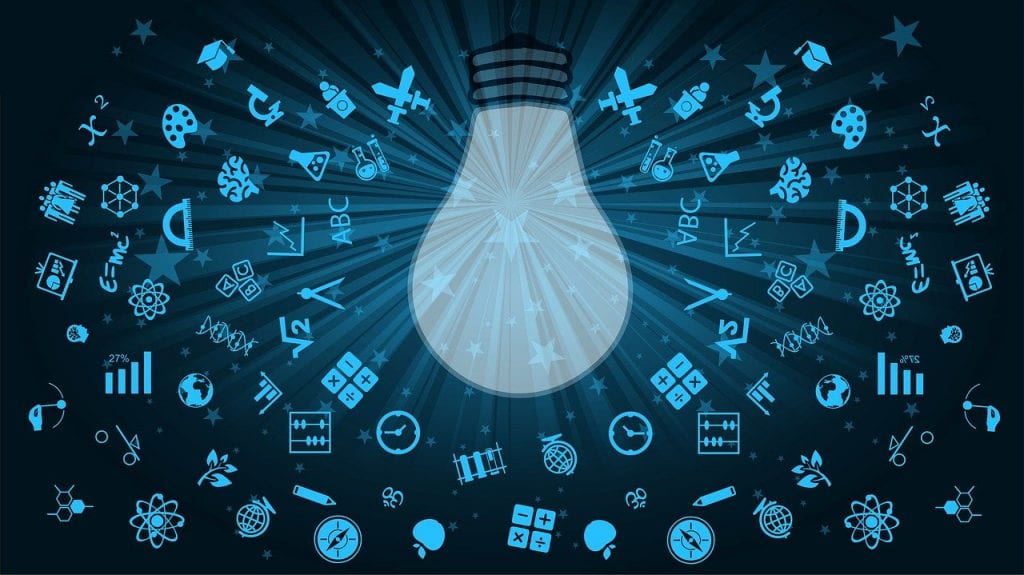There is no alternative to skill based education to meet the challenges of the 21st century. The post-Covid education system has urged upon developing our students’ skills. It’s not a higher degree; rather a skill-based education is essential for holistic development. The Fourth Industrial Revolution (4IR) has also emphasized the same. Development of skill-based education will enable today’s students to face the challenges of the 21st century firmly and occupy a strong position in their workplace. Therefore, to meet the challenges of the future, we must give special importance to acquiring the following skills in our curriculum—
Creativity and innovation skills
We know that the global marketplace is more competitive than ever. Innovative products and creative thinking enhance the power of an organization to design and present it in an aesthetically pleasing way. Creativity and innovation are not only valuable learning pursuits, but also an important tool for success in educational institutions and the workplace.
Adaptability Skills
In this digital era, the world is witnessing many changes at an exponential rate. New versions of technology are arriving in our workplaces every day and employers have to adapt constantly to the changing conditions. Education should be given to adapt to all other technologies including business, entrepreneurship, entertainment, communication and lifestyle trends.
Communication Skills
In today’s world, communication skills are key to artistic development. We use more technology than ever before to protect communications. Along with video conferencing, various new ways of communicating on social media have emerged. We need to educate our students to be able to communicate with employers and everyone inside or outside the workplace.
Collaboration Skills
Team work through mutual collaboration is a feature of the digital age. A person should know how to be able to work in both physical and virtual teams. Collaboration skills are one of the essential skills taught in classrooms worldwide. We need to inculcate in our students the ability to adapt to the collaborative culture of future employers in every step of education.
Leadership Skills
Every teacher is a leader in his class. He teaches leadership to students in his classroom. He can teach the practice of an “I can do it” to a “we can do it” attitude when it comes to teamwork. After all, one who leads is not just someone who manages things. What a leader does is to inspire, motivate and empower his students.
Problem Solving Skills
The world is changing and many problems will come dramatically, which our students have to solve. They may face challenges that require these skills to solve. Learning to use it effectively by designing appropriate solutions to any problem is essential for students.
Critical Thinking Skills
In today’s fast-changing world, employers need employees who can solve problems, provide ideas and help improve the organization. Critical thinking skills are essential for future success. It enhances the ability to think independently, responsibly and productively. Critical Thinking (CT) and Internet of Thing (IoT) are among the best terminologies of these thinking skills, which every student must know.
Information management skills
We should know what is valuable and what is worthless, false or suspicious in information breakdown and information search. Then we can accept or reject it accordingly. It is quite important to come up with original and useful solutions based on information. This is one aspect of research that citizens need to know. Information is alive and evolving.
Personal Management Skills
Personal management is important among the basic skills to overcome future challenges. This includes the ability of employers to independently adopt, organize, develop and implement plans. This skill is one of the components of every student’s career.
Curiosity and Inquiry Skill
Without curiosity and inquiry skills, nothing can be learned and performed effectively in practical life. Lifelong learning is driven by curiosity and inquiry. Through this, knowledge and skills can be acquired at any level of life outside the classroom. In the classroom students should be empowered to ask questions to improve their learning skills.
Technology Skill
In this era of the fourth industrial revolution, there is no alternative to the maximum use of technology. Educational institutions have laid great emphasis on technological education to meet the challenges of the 21st century, but it needs to be enriched at all levels of education. Technical skills act as a major driving force in our careers.
Soft Skills
The skills that create additional value for every student are soft skills, which include time management skills, organizational skills, visual communication skills, smart presentation skills, etc. Most of the businessmen or entrepreneurs prioritize this skill in their place of business.
Reflection Skill
The teacher will teach students such knowledge and skills that they will be reflected in their daily life. If students can understand that every education is a real reflection of career life, they will be able to leave a bright signature of success in their respective workplaces.
Empathy and Attitude Skills
Teachers should teach their students the ability to empathize with others, understand their feelings, and help them solve their problems. There should be a system of increasing the ability to always have a kind attitude towards all persons, whether senior or junior, as well as their companions.
Conclusion
The above-mentioned skills are essential skills for all students to face the challenges of the future. These skills enhance the continuous development of students and help shape our future for the better. In short, mastering useful lifelong learning skills helps us work, learn and live better



 For all latest articles, follow on Google News
For all latest articles, follow on Google News